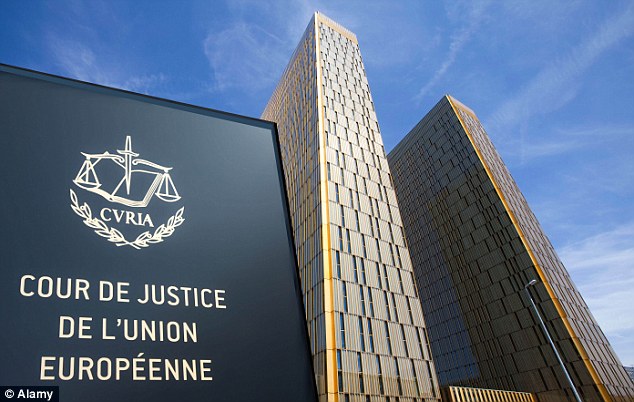CJEU Advocate General: Member States Must Recognise Same-Sex Marriages from Other EU Countries

An opinion from the EU Court of Justice’s Advocate General states that Member States must recognise same-sex marriages performed in other EU countries to ensure freedom of movement.
Today, in a significant development regarding the freedom of movement of same-sex couples within the EU, the Advocate General of the Court of Justice of the European Union (CJEU) Richard de la Tour has issued an opinion calling for Member States to recognise a same-sex marriage concluded in another Member State. While he considered that EU law does not require the transcription of the marriage certificate in a civil register, he said that if a country does not allow same-sex marriage and has no other way to recognise one, then it must register the marriage certificate to ensure legal recognition.
The case concerns Poland’s refusal to transcribe into the civil registry a certificate of same-sex marriage contracted in Germany between a Polish citizen and a Polish-German citizen. The couple currently resides in Poland.
The Court is asked in this case whether this refusal conforms with the provisions of the Treaty on the Functioning of the European Union (TFEU) and of the Free Movement Directive, read in conjunction with the Charter of Fundamental Rights of the EU, particularly the right to respect for private and family life and the prohibition of discrimination.
In this respect, the Advocate General said that the absence of any recognition of a marital relationship established in another Member State limits the freedom of EU citizens to move and reside, which is guaranteed to them by EU law. Moreover, not to recognise that relationship is liable to undermine the right to respect for private and family life.
Consequently, the Advocate General said it is for the Member States which do not provide for same-sex marriage to establish appropriate procedures to ensure that such marriages concluded in another Member State are made public with respect to third parties. Such procedures are designed not to leave same-sex couples in a legal vacuum and to regulate fundamental aspects of their life, such as those concerning property, taxation or inheritance.
This case marks a significant step towards the protection of same-sex couples across the EU, especially in light of the recent European Court of Human Rights judgments in Przybyszewska and Others v. Poland which found the Polish state in violation of Article 8 (right to respect for private and family life) of the ECHR for failing to provide a specific legal framework recognising and protecting same-sex unions, and in Formela v. Poland, which found that Poland breached the same provision for failing to recognise the relationships of two same-sex Polish couples married abroad.
Accordingly, the Advocate General observed that, in view of the absence of alternative solutions in Poland for enabling the marital status to be proven – such as the submission of any other official document that may be recognised by the Polish authorities – Poland is under an obligation to transcribe the same-sex marriage certificate.
According to Strategic Litigation Officer with ILGA-Europe Sinéad Gough: “This opinion is going a step further than what the Court’s ruling in Coman, which established that EU Member States must recognise same-sex spouses for the purpose of residency rights under EU free movement laws. This new opinion goes further by recognising the need for Member States to acknowledge same-sex marriages so that couples can access the same rights and benefits as different-sex couples in their country of residence. The opinion confirms that the transcription of marriages in civil registries is the only way to effectively ensure the free movement of same-sex couples in the EU, particularly in countries that still lack any legal framework recognising same-sex unions.”
This is yet another very strong call on the European Commission to fully ensure the rights of same-sex couples in the framework of free movement across the EU, including by finally opening infringement procedures on the non-implementation of the Coman judgment by Romania.
Attorneys Pawel Knut and Artur Kula from KMA Law Firm, the lawyers representing the applicants in the case, said that: “The opinion of the Advocate General de la Tour stays in line with our position in this case: if a Member State does not provide any other possibility of the recognition of the marriage between persons of the same sex than a transcription, then such a transcription should be obligatory. We hope that the CJEU will follow this approach, as it is the only way to finally overcome the current legal deadlock in Poland.” .
As the CJEU deliberates on this case, there is a collective hope that the judgment will align with the opinion of the Advocate General and ensure the recognition by Polish authorities of the foreign same-sex marriage certificate, in view of the absence of recognition of these marriages in the country.
The judgment is expected to be delivered later on this year.
ILGA-Europe is providing support to the applicants and their lawyers in this case.